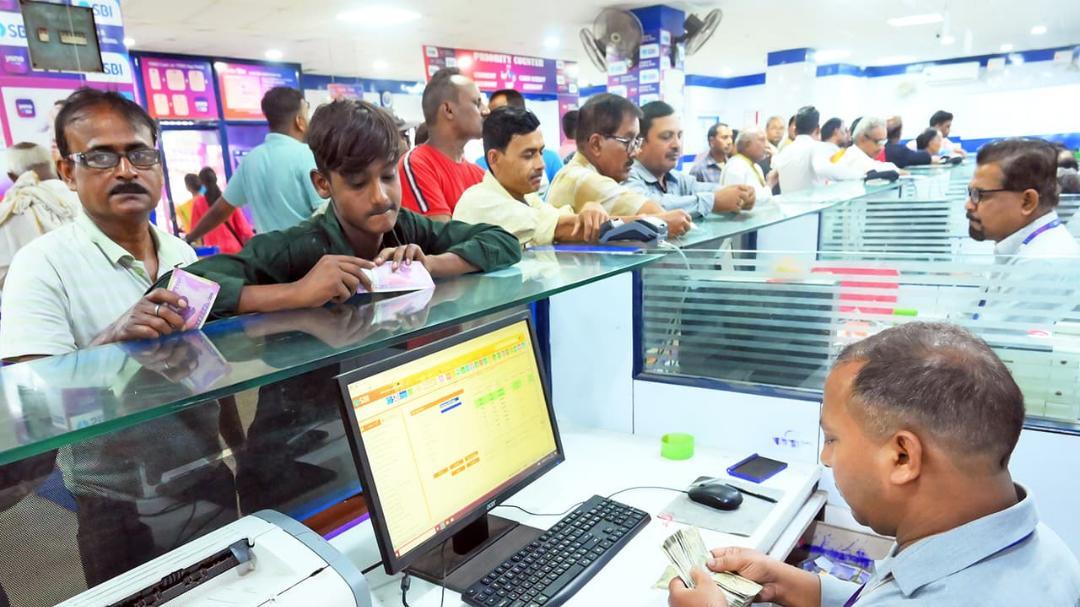
RBI’s government securities holdings jump to 14.2%: SBI report
The Reserve Bank of India’s (RBI) share in government securities has witnessed a significant surge, rising to 14.2% in June 2025 from 11.9% last year, according to a recent report by the State Bank of India (SBI). This increase in the RBI’s holdings of government securities is a notable development, as it indicates a shift in the composition of ownership of government debt. The report also highlights that banks have reduced their exposure to government securities, while insurance companies have maintained a stable holding.
The RBI’s increased holdings of government securities can be attributed to its efforts to manage liquidity in the financial system and maintain stability in the bond market. With heavy central and state borrowings on the horizon, the RBI’s move to increase its holdings of government securities is likely to have a significant impact on the bond market. The report suggests that bond yields may remain rangebound due to the RBI’s interventions, as well as the upcoming borrowings by the government.
The reduction in banks’ exposure to government securities is another significant development. Banks have traditionally been major holders of government securities, but they have been reducing their holdings in recent times. This reduction in exposure can be attributed to various factors, including changes in regulatory requirements and the need to manage their balance sheets more effectively. The report notes that banks have been shifting their focus towards lending and other business activities, rather than holding government securities.
On the other hand, insurance companies have maintained a stable holding of government securities. Insurance companies are major investors in government securities, as they provide a safe and stable source of returns. The report suggests that insurance companies are likely to continue holding a significant portion of government securities, given their long-term investment horizon and the need to match their assets with their liabilities.
The RBI’s foreign exchange interventions have also had a significant impact on the bond market. The central bank has been intervening in the foreign exchange market to manage the value of the rupee and maintain stability in the financial system. These interventions have resulted in a tightening of liquidity, which has had a knock-on effect on the bond market. The report notes that the RBI’s forex interventions have prompted fresh Open Market Operations (OMO) moves, which are aimed at injecting liquidity into the financial system and maintaining stability in the bond market.
The implications of the RBI’s increased holdings of government securities are far-reaching. With the central bank holding a larger proportion of government debt, it is likely to have a significant impact on the bond market. The report suggests that bond yields may remain rangebound, as the RBI’s interventions are likely to keep yields in check. This could have implications for borrowers, as it may affect the cost of borrowing in the economy.
Furthermore, the RBI’s increased holdings of government securities may also have implications for the fiscal deficit. The government’s borrowings are likely to increase in the coming months, which could put pressure on the fiscal deficit. The report notes that the RBI’s interventions may help to manage the fiscal deficit, by keeping bond yields in check and reducing the cost of borrowing for the government.
In conclusion, the RBI’s increased holdings of government securities, as reported by the SBI, is a significant development that is likely to have far-reaching implications for the bond market and the economy. The reduction in banks’ exposure to government securities and the stable holding of insurance companies are also notable developments. The RBI’s forex interventions and OMO moves are aimed at maintaining stability in the financial system, and are likely to have a significant impact on the bond market. As the economy navigates through a period of heavy central and state borrowings, the RBI’s actions will be closely watched by market participants.





